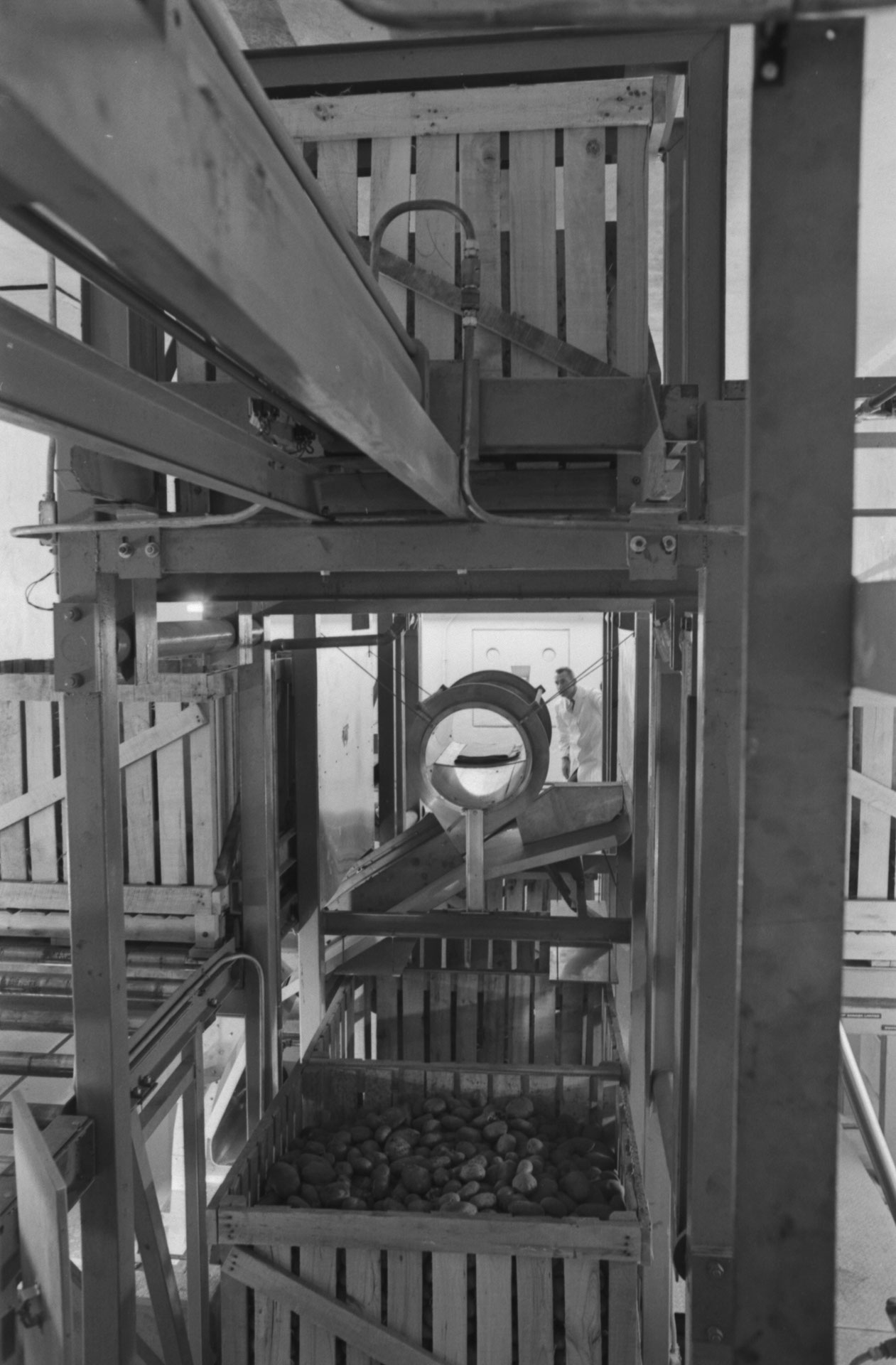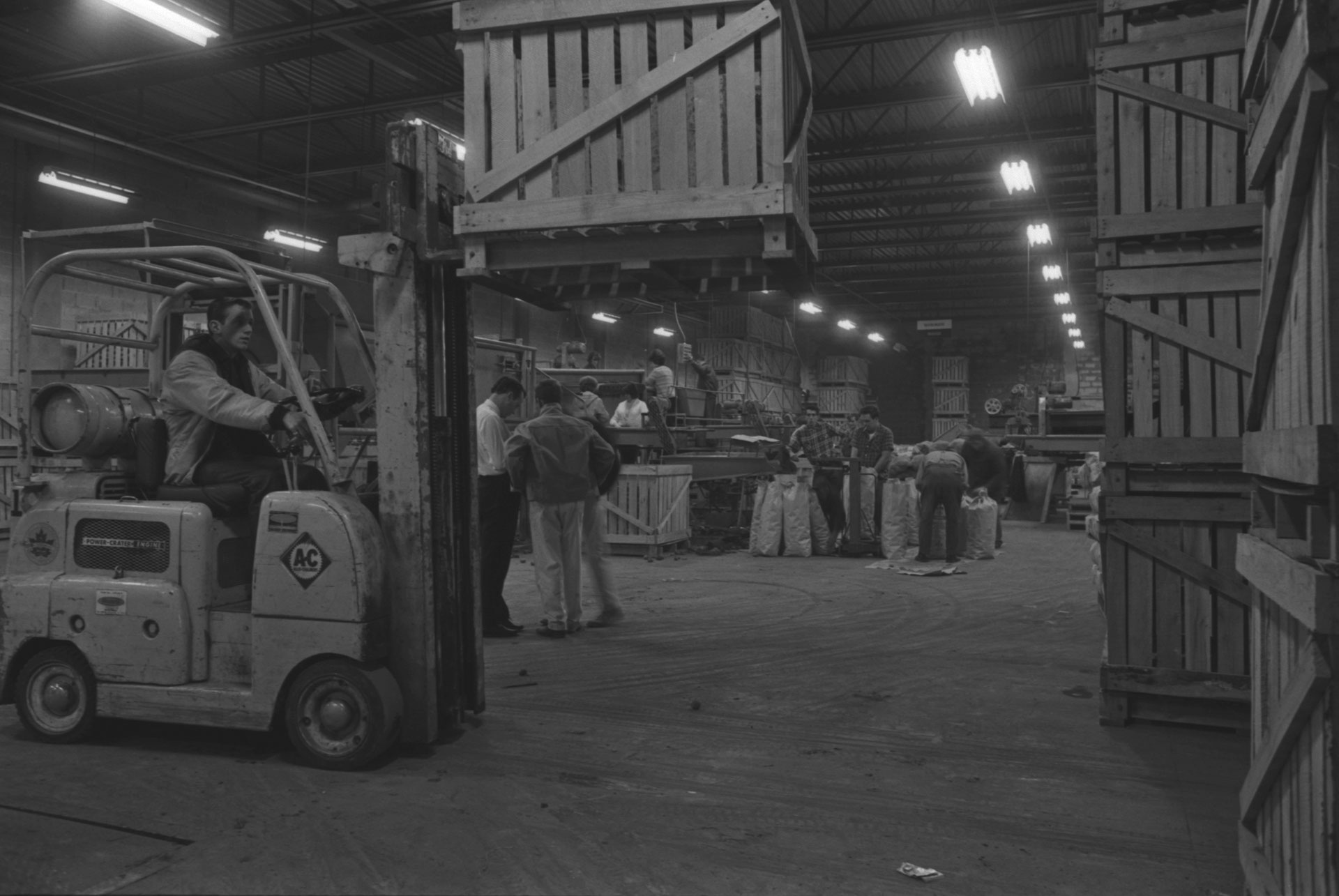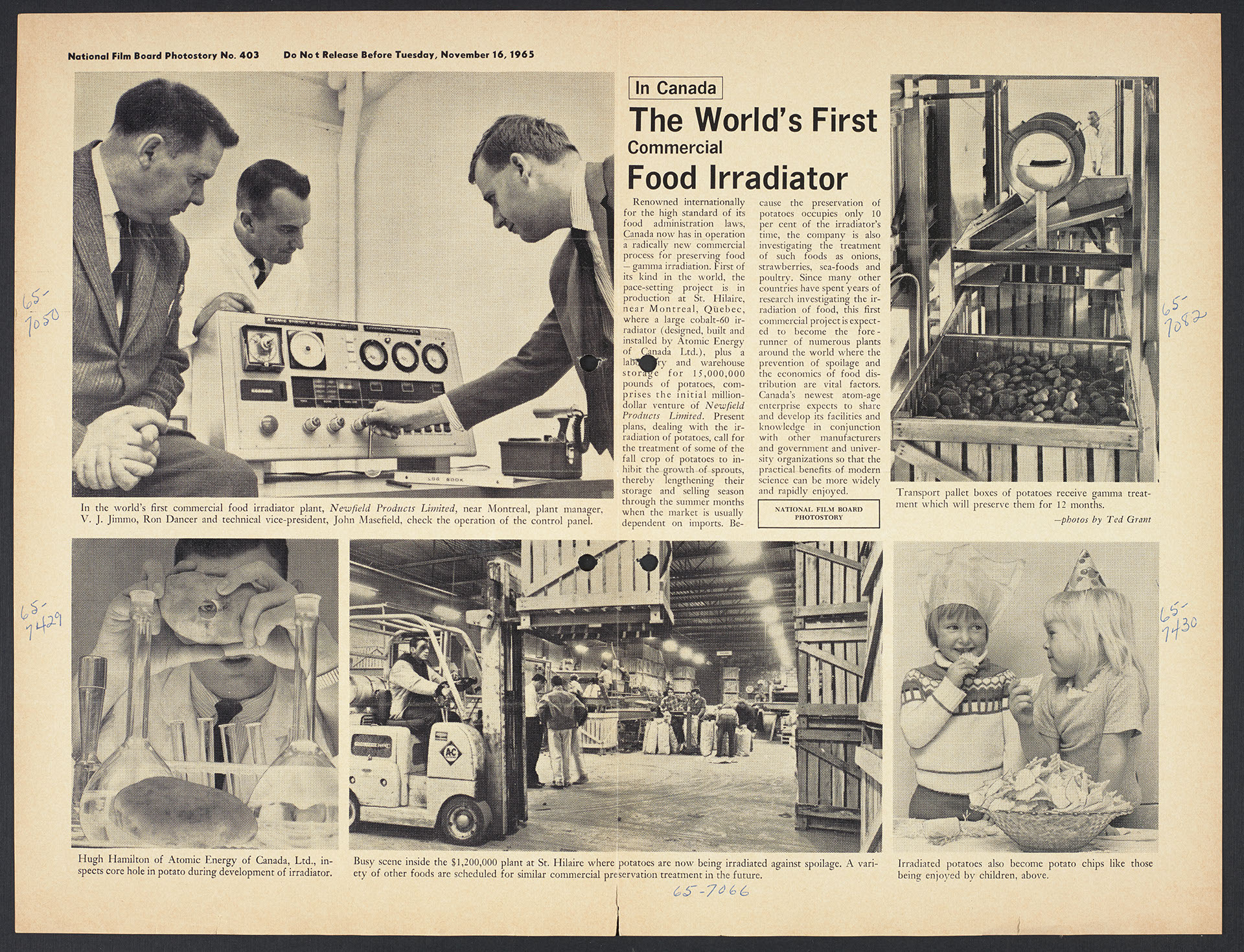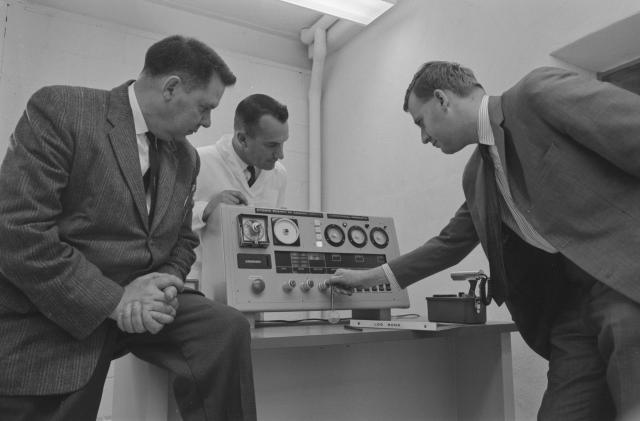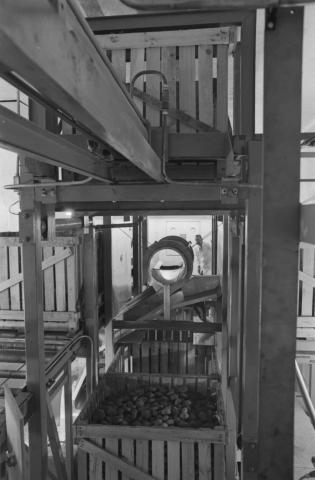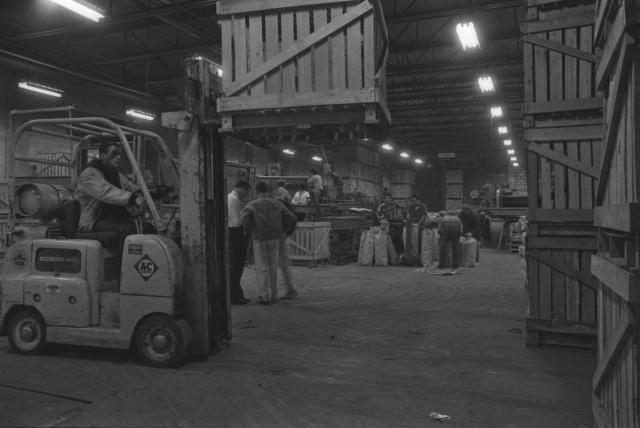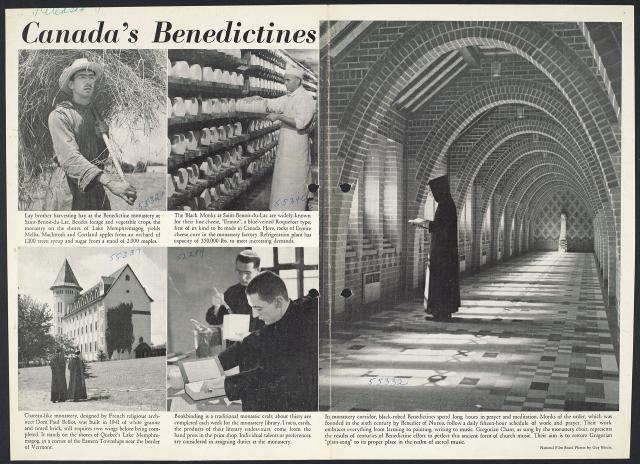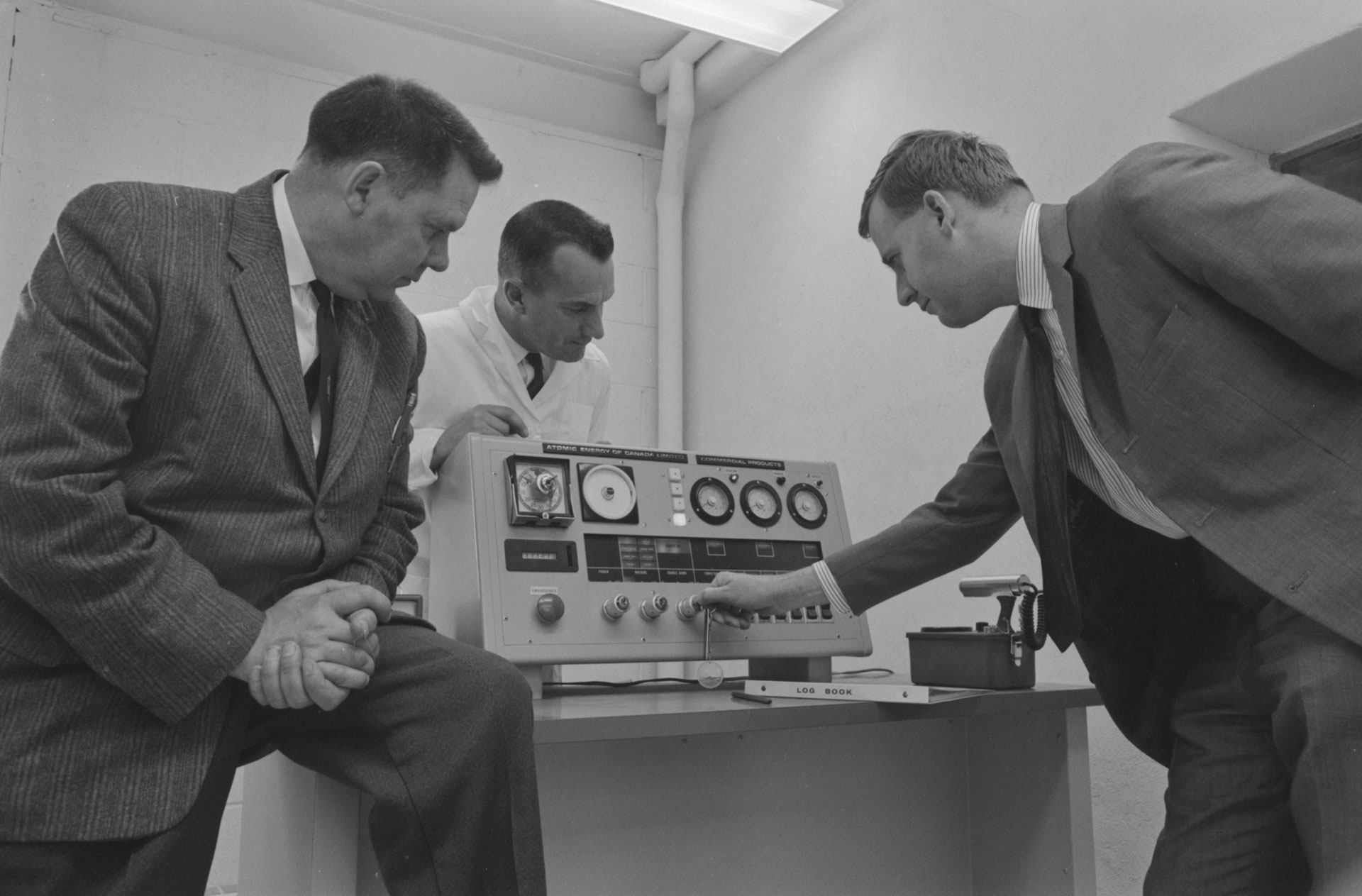
Photostory #403: In Canada: The World's First Commercial Food Irradiator
Photographers
Maker
National Film Board of Canada
Release Date
November 16, 1965
Collection
CMCP fonds
Credit Line
Canadian Museum of Contemporary Photography fonds, National Gallery of Canada Library and Archives
Main Text
Renowned internationally for the high standard of its food administration laws, Canada now has in operation a radically new commercial process for preserving food - gamma irradiation. First of its kind in the world, the pace-setting project is in production at St. Hilaire, near Montreal, Quebec, where a large cobalt-60 irradiator (designed, built and installed by Atomic Energy of Canada Ltd.), plus a laboratory and warehouse storage for 15,000,000 pounds of potatoes, comprises the initial million-dollar venture of Newfield Products Limited. Present plans, dealing with the irradiation of potatoes, call for the treatment of some of the fall crop of potatoes to inhibit the growth of sprouts, thereby lengthening their storage and selling season through the summer months when the market is usually dependent on imports. Because the preservation of potatoes occupies only 10 per cent of the irradiator's time, the company is also investigating the treatment of such foods as onions, strawberries, sea-foods and poultry. Since many other countries have spent years of research investigating the irradiation of food, this first commercial project is expected to become the forerunner of numerous plants around the world where the prevention of spoilage and the economics of food distribution are vital factors. Canada's newest atom-age enterprise expects to share and develop its facilities and knowledge in conjunction with other manufacturers and government and university organizations so that the practical benefits of modern science can be more widely and rapidly enjoyed.
Subjects:

